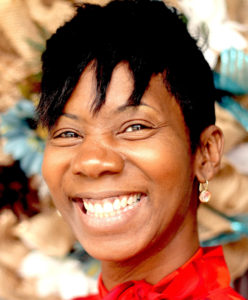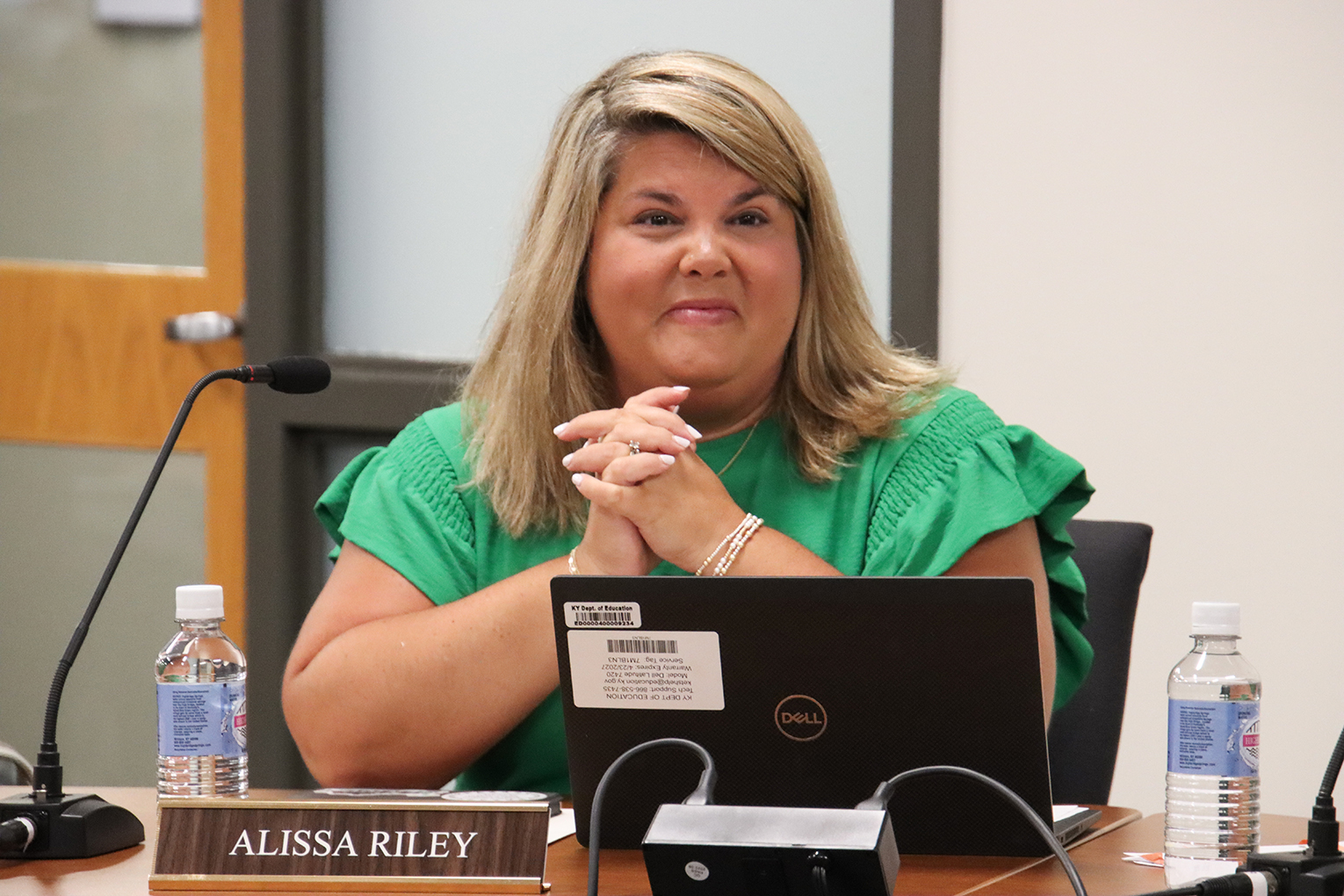“I know I can, (I know I can) be what I wanna be – If I work hard at it (if I work hard at it) I’ll be where I wanna be” – Nas

NyRee Clayton-Taylor
In 1990, rapper Nasir Jones – more commonly known as Nas – burst onto the hip-hop scene with his debut album, “King of New York.” Nas provided the popular gangsta rap scene with a new genre of rap that included intellectual rhymes and superior narratives.
So when Nas released his fifth studio album in 2003 and dropped the track “I Can” featuring kids melodically singing the words, “I know I can, be what I wanna be” against the backdrop of Ludwig Van Beethoven’s “Für Elise,” the song was an instant hit. It provided youth the power to unleash their “I can” in framing their future.
Like Nas, I believe in the power of unleashing the “I can” in all students. Thinking about my childhood, I remember a time when my future seemed bleak. I was in my second year of 3rd grade due to behavioral problems, suffering from post-traumatic stress disorder due to childhood violence, and was labeled as having learning disabilities.
My teacher, Mrs. Emory, interrupted that narrative by asking me to dance as she explained the importance of rhythm to poetry. After years of being labeled with behavioral problems and reading disabilities, Mrs. Emory instantly changed my story. At that moment, I knew I could do anything.
Mrs. Emory didn’t give up. She found an alternative method that no other teacher had used and found a way to reach me using my gifts. It didn’t matter to her how dysfunctional my life had been, all that mattered to her was my success.
Nas’ lyrics embody Mrs. Emory’s spirit of unleashing the power of “I can.” When I play “I Can” to my students, I remember the beliefs that were held by Mrs. Emory. Each belief of Nas and Mrs. Emory is a playbook of how we, as educators, can unleash the power of “I can” in all students.
“Nothing comes easy; it takes much practice” – Nas, “I Can”
Mrs. Emory believed in setting high expectations for all of her students.
To help Kentucky students unleash the power of “I can,” we must expect their best. Setting high, but not impossible, expectations push students to higher standards of achievement.
One way to set high expectations is the belief that to opt-out is not an option. This belief can be used in any situation. Mrs. Emory had a “no zero” policy (which I hated) and even created alternative opportunities that allowed me to practice the work I needed to succeed. She gave me the time and practice to my achieve goals.
Being labeled as learning disabled lowered my expectations and I often felt that I couldn’t do the work. She noticed my low self-esteem and provided me with options that allowed me to succeed. When my homework wasn’t complete, she offered me time to complete my assignments while I ate breakfast in her classroom. When I failed written spelling tests, she gave me the opportunity to take my spelling tests orally and even encouraged me to compete in the school wide spelling bee.
Mrs. Emory was my very own cheering squad. She provided me with a safe and loving environment that allowed me to flourish and take chances. Like Nas, she knew that I needed practice and offered me the opportunities to attain success.
“If you believe you can achieve, then say it like this” – Nas, “I Can”
Mrs. Emory believed in my voice.
Students must feel like they have a voice. Unleashing the power of “I can” can’t happen if our students feel silenced.
I remember eavesdropping on a conversation my mother and Mrs. Emory had about me. I remember my mother telling Mrs. Emory that I loved to make up songs and perform in front of my family and friends. My mother also apologized to her for my ability to create a conversation about any subject when I was supposed to be paying attention or completing my work.
Mrs. Emory told my mom that she had noticed my aptitude for talking and decided she would give me a notebook so I could write my thoughts, but Mrs. Emory didn’t stop there. She also gave me an outlet by asking me to perform my poetry in front of my classmates. Mrs. Emory gave me a voice and didn’t try to silence me. When I wrote my poetry or my 3-page compositions about, “The Importance of Love,” (Whew, bless her heart!) she conferenced with me and appreciated the voice I had.
By allowing me to dance, write my raps/poetry and giving me the stage, she used my abilities to create learning for all students. While I do believe that I was Mrs. Emory’s favorite student (like all students should feel), I know that other students in my classroom needed attention too and they also were empowered to use their voices. She did not condemn our opinions or insights and like Nas, offered us the strength to raise our voices for us to unleash the power of “I can.”
As teachers, we must allow our students to use their voice through the talents they possess. By doing this, we make learning achievable for every student.
“Read more, learn more, change the globe” – Nas, “I Can”
Mrs. Emory believed in my ability to change the world.
Students must become nimble and empowered to be the change-makers we want to see in our world.
As teachers, we set the example of how to be change-makers in our classrooms. Our interactions with students set the tone and create experiences for our students to be change-makers and entrepreneurial thinkers.
Recently I read the book, “Empower: What Happens When Students Own their Learning” by John Spencer and A.J. Juliani. In the book, the authors explain that for our students to thrive in an increasingly complex and competitive world, they must think like entrepreneurs. The book states, “Our students may not own their own company, but they will have to invent or reinvent their jobs to stay relevant.”
This quote made me think of the projects Mrs. Emory would allow us to create in our classroom. The classroom garden, making fresh butter and ice cream, and the parties she would let us plan moved me beyond 3rd-grade coursework and empowered me to find ways to be a change-maker. Mrs. Emory didn’t think our ideas were too small and created an environment that allowed us to take chances and become risk-takers. She enabled entrepreneurial thinking by allowing us to move from self-starters to self-managers and eventually to creators.
In the song “I Can,” before Nas instructs our children to read more, learn more and change the globe, he tells students that they do not have to become what society already believes they are. Mrs. Emory did that for me. She understood that I already had the ability to be an independent, autonomous learner and thinker. She gave me the tools to become more competent and self-directed as she gifted me with high expectations and the use of my voice. She propelled me to believe in the power of “I can” and my ability to change the world by creating authentic opportunities for me that went beyond the curriculum.
Understanding that each child is unique and arrives in our classroom with different strengths and abilities is what helps us create opportunities that move our students beyond compliance learning. It’s the only way we unleash our student’s capabilities to change the world. It is also how we unleash their abilities and create the “I can” inside of them. We need to be our student’s loudest supporters, which is what Mrs. Emory did for me and what I do for my students daily.
As I look at each student in my classroom, I think about the playbook of Nas and Mrs. Emory and I instruct my students to raise their fists and repeat after me, “I know I can be what I wanna be!” As I dance around each child, nodding my head and smiling as each student becomes louder and more confident in the words they are reciting, I still hear Mrs. Emory’s familiar voice in my heart cheering for my success. She is still there encouraging me and being my biggest supporter.
NyRee Clayton-Taylor teaches creative writing through hip-hop at Wheatley Elementary School (Jefferson County). She uses a curriculum that she developed that infuses hip-hop based education and project-based learning to help her students to write to heal. She has taught for 19 years and is a product of the Jefferson County school system. Clayton-Taylor graduated from Kentucky State University, Western University and received her Rank I from Bellarmine University. She is the 2019 Kentucky Elementary School Teacher of the Year.



Leave A Comment